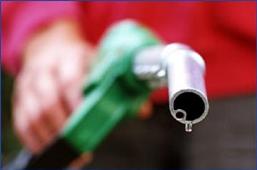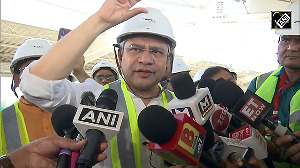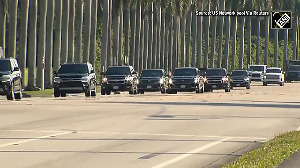 After incurring a revenue loss of Rs 2,236 crore (Rs 22.36 billion) in 2011-12 on account of not being able to pass on increase in petrol prices to consumers, IndianOil Corporation, the country's biggest oil marketer, on Tuesday urged the government to regulate petrol prices temporarily, so that the full loss could be compensated, or cut taxes on the fuel.
After incurring a revenue loss of Rs 2,236 crore (Rs 22.36 billion) in 2011-12 on account of not being able to pass on increase in petrol prices to consumers, IndianOil Corporation, the country's biggest oil marketer, on Tuesday urged the government to regulate petrol prices temporarily, so that the full loss could be compensated, or cut taxes on the fuel.
Else, the company, along with Bharat Petroleum and Hindustan Petroleum, would raise petrol prices.
IOC urged the government to cut excise duty by Rs 8 (the current revenue loss) to Rs 6.78 per litre. It also demanded a cut in state-level taxes.
State sales tax varies from 15 to 33 per cent (Rs 10.30 to Rs 18.74 per litre).
The newly elected government in Goa had done away with the entire value-added tax on petrol to give consumers a relief of Rs 11 a litre.
In June 2011, the central government had cut diesel excise duty from Rs 4.60 to Rs 2 a litre.
Since the last price cut of Rs 0.65 a litre in December last year, international petrol prices have gone up and stand at $132.45 a barrel in the current pricing period.
This is much higher than the price of $109.03 a barrel at which IndianOil and the other two oil marketing companies, Bharat Petroleum and Hindustan Petroleum, are selling petrol (excluding state levies), according to
The company's inability to effect price increases during December 16, 2011 to March 31, 2012 has resulted in a revenue loss of Rs 1,036 crore or Rs 10.36 billion) (Rs 2,287 crore or Rs 22.87 billion for the three companies together).
"The under-recoveries suffered by IndianOil during 2011-12, due to its inability to pass the increase to consumers, has resulted in total under-recoveries of Rs 2,236 crore or Rs 22.36 billion (Rs 4,859 crore or Rs 48.59 billion for the three companies)," stated the company statement.
In the first fortnight of the current financial officer, IndianOil suffered under-recoveries of Rs 331 crore or Rs 3.31 billion, while the three companies together had under-recoveries of Rs 745 crore or Rs 7.45 billion.
The current situation, where oil companies have to import crude oil at $121.29 per barrel and sell at $109.03 per barrel, is not sustainable, and therefore, cannot continue.
Continuation of such pricing would only impede the ability of the company to import crude oil and might affect product supply-demand balance, the statement said.
The Reserve Bank of India in its policy review on Tuesday also advocated raising gasoline retail prices.
"It is imperative for macroeconomic stability that administered prices of petroleum products are increased to reflect their true costs of production," RBI Governor Duvvuri Subbarao said.













 © 2025
© 2025